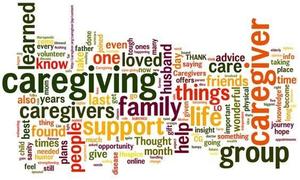But they aren’t entirely confident they will be able to do so.
Noting from studies how easily AI-powered chatbots can be manipulated to craft convincing phishing emails.
Connected care in the home has the potential to address both the preferences of older adults and the societal imperative to care for a rapidly growing aging population
A practical guide to understanding autonomous AI agents, why they matter for healthcare governance, and what to do about them.
The growing ecosystem of devices and products serving peoples’ health and well-being shows us that innovators already see the opportunity to serve the fast-growing market for self-care among people 50 years of age and up.

 We are selling a product that people don’t want to buy. This Senior Housing News article,
We are selling a product that people don’t want to buy. This Senior Housing News article,  Clearly many caregivers are missing out on useful technology. According to the new
Clearly many caregivers are missing out on useful technology. According to the new  This report is published every five years – and it is (still) dismaying. The new report,
This report is published every five years – and it is (still) dismaying. The new report,  An AI tech agent on our behalf – predicted long ago. Consider the definition: “An AI agent is a system that perceives its environment, makes decisions, and takes actions to achieve specific goals, often autonomously.” At first look, that seems quite scary and is reminiscent of two quite predictive fictions:
An AI tech agent on our behalf – predicted long ago. Consider the definition: “An AI agent is a system that perceives its environment, makes decisions, and takes actions to achieve specific goals, often autonomously.” At first look, that seems quite scary and is reminiscent of two quite predictive fictions:  Five years ago -- this site looked at the state of dementia-related technologies. The more things (the tech offerings) change, the more their purpose and function remain the same. Today there are websites that list gadgetry for managing and living with dementia. There are
Five years ago -- this site looked at the state of dementia-related technologies. The more things (the tech offerings) change, the more their purpose and function remain the same. Today there are websites that list gadgetry for managing and living with dementia. There are